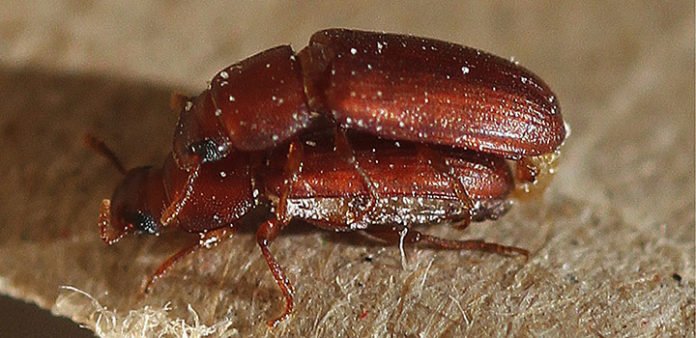A recent study by the University of East Anglia recommends that climate change could pose a threat to male fertility. The study discloses that the sperm function is an especially sensitive trait when the environment heats up, and in a model system representing a huge amount of global biodiversity.
According to the study, heatwaves damage sperm in insects. It negatively impacts their fertility across generations. The study is expected to further explain why climate change is having such an impact on species populations, including climate-related extinctions in recent years.
Research group leader Prof Matt Gage, from UEA’s School of Biological Sciences, said: “We know that biodiversity is suffering under climate change, but the specific causes and sensitivities are hard to pin down.”
“Since sperm function is essential for reproduction and population viability, these findings could provide one explanation for why biodiversity is suffering under climate change.”
“A warmer atmosphere will be more volatile and hazardous, with extreme events like heatwaves becoming increasingly frequent, intense and widespread.”
“Heatwaves are particularly damaging extreme weather events. Local extinctions are known to occur when temperature changes become too intense. We wanted to know why this happens. And one answer could be related to sperm.”
During the study, scientists researched the red flour beetle (Tribolium castaneum) to investigate the impacts of reenacted heatwaves on male reproduction. The beetles were presented to either standard control conditions or five-day heatwave temperatures, which were 5°C to 7°C over their warm ideal.
A short time later, an assortment of tests surveyed the potential harm to reproductive success, sperm capacity and offspring quality.
Scientists discovered that the heatwaves divided the number of offspring males could create, and a second heatwave nearly sanitized males.
Females, by differentiation, were unaffected by heatwave conditions. In any case, female generation was influenced in a roundabout way since trials demonstrated that heatwaves harmed inseminated sperm inside female regenerative tracts.
Following trial heatwaves, males decreased sperm creation by seventy-five percent, and any sperm delivered then attempted to move into the female track and will probably bite the dust before fertilization.
Kris Sales, a postgraduate researcher who led the research, said: “Our research shows that heatwaves halve male reproductive fitness, and it was surprising how consistent the effect was.”
Scientists also explored the underlying causes of male vulnerability. Heatwaves caused some impact on male sexual behavior – with males mating half as frequently as controls.
Sales said, “Two concerning results were the impact of successive heatwaves on males and the impacts of heatwaves on future generations. When males were exposed to two heatwave events 10 days apart, their offspring production was less than 1 percent of the control group. Insects in nature are likely to experience multiple heatwave events, which could become a problem for population productivity if male reproduction cannot adapt or recover.”
The research also shows that offspring sired by heatwaved dads – or their sperm – live shorter lives – by a couple of months. And the reproductive performance of sons produced by dads – or sperm – exposed to heatwave conditions was also impacted. Sons were found to be less able to fertilize a series of potential mates and produced less offspring.
Sales said, “Beetles are thought to constitute a quarter of biodiversity, so these results are very important for understanding how species react to climate change. Research has also shown that heat shock can damage male reproduction in warm-blooded animals too, and past work has shown that this leads to infertility in mammals.”
The study is published in Nature Communications on Tuesday, November 12, 2018.
